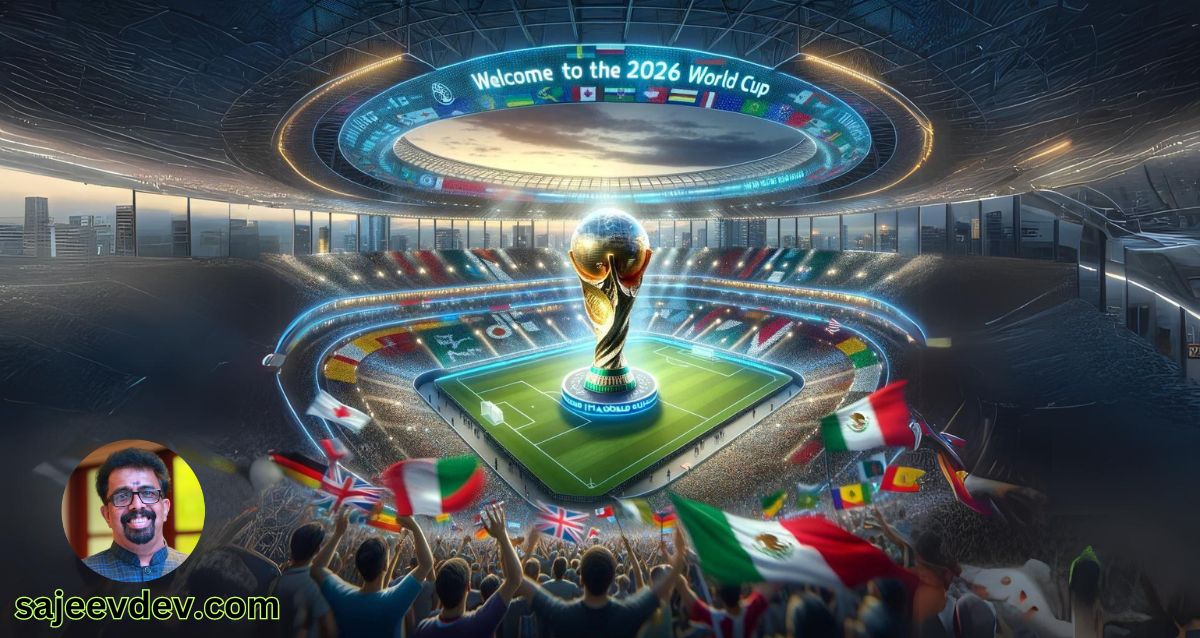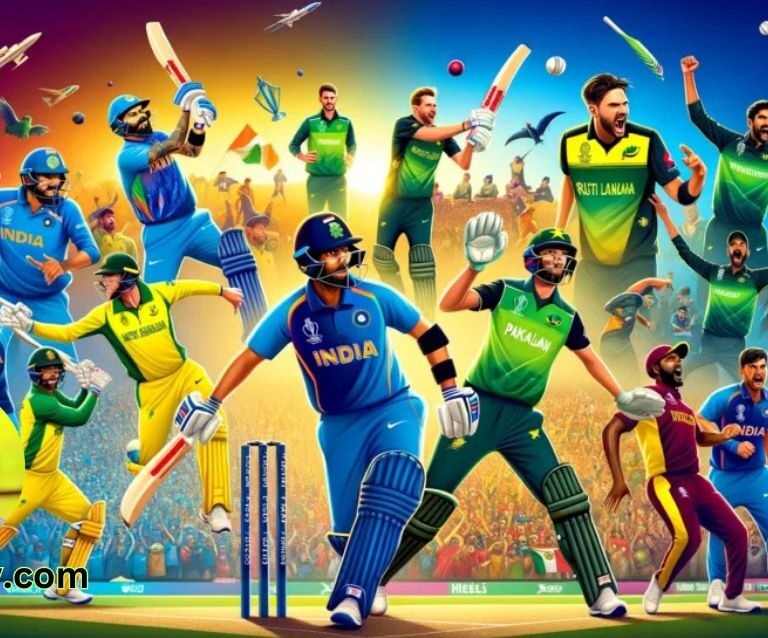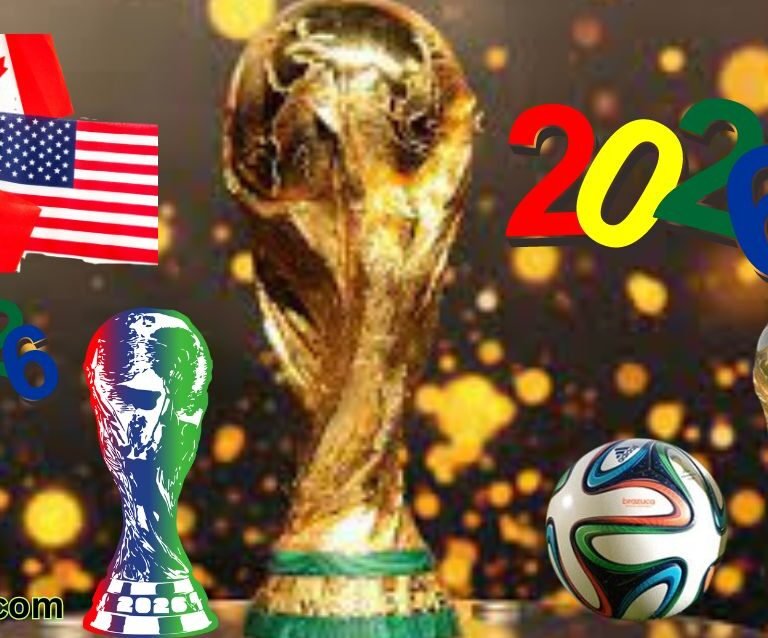The FIFA World Cup
The FIFA World Cup is one of the most prestigious and widely viewed sporting events in the world, captivating millions of fans across the globe. Held every four years and organized by the Fédération Internationale de Football Association (FIFA), this tournament showcases the best national teams competing for the title of world champion. The inaugural World Cup took place in 1930 in Uruguay, and since then, it has evolved into a grand spectacle that transcends geographical, cultural, and social boundaries.
The significance of the FIFA World Cup extends beyond the realm of sports; it serves as a unifying force, bringing together nations and communities in support of their teams. The event fosters a sense of national pride and identity, as fans passionately rally behind their country’s squad. The emotional investment from supporters amplifies the tournament’s importance, making it a focal point of discourse in many nations as countries strive for glory on the international stage.
Culturally, the FIFA World Cup has a profound impact, influencing various aspects of daily life, including celebrations, traditions, and even fashion. Local festivities often coincide with the tournament, showcasing a blend of joy and camaraderie among fans from diverse backgrounds. The tournament’s legacy is not limited to the duration of matches but extends to shaping future generations’ understanding and appreciation of football. This includes inspiring young athletes to participate, enhancing grassroots development, and promoting positive values such as teamwork and sportsmanship.
Ultimately, the FIFA World Cup stands as a testament to the universal love for football, creating unforgettable moments that are cherished for years. As nations prepare for the upcoming tournament, the anticipation builds, echoing the excitement that the event consistently generates worldwide.
Reflections on the Last FIFA World Cup
The last FIFA World Cup, held in Russia in 2018, captured the attention of sports enthusiasts worldwide. This tournament was notable not only for its thrilling matches but also for its unexpected outcomes and standout performances. One of the most memorable highlights was the early upset of Germany, the reigning champions, who were eliminated in the group stage. This shocking outcome demonstrated the unpredictable nature of the tournament and set the stage for numerous surprises throughout the competition.
A particularly remarkable moment came during the Round of 16, where France faced Argentina in a match that showcased stunning displays of talent and grit. The match ended with a score of 4-3 in favor of France, primarily thanks to the exceptional performance of young superstar Kylian Mbappé. His blistering pace and composure under pressure not only secured his team’s victory but also marked him as one of the leading figures of the tournament. Mbappé’s subsequent contribution to France’s journey to the championship was pivotal, culminating in their triumphant victory against Croatia in the final.
Moreover, the 2018 FIFA World Cup introduced fans to a striking blend of playing styles and strategies, with many countries demonstrating extraordinary growth and skill. The tournament also emphasized the importance of teamwork, showcasing how collective effort often outshines individual brilliance. The emergence of teams like Croatia, who reached the final for the first time in their history, illustrated the increasing competitive balance in international football.
The excitement generated by the previous World Cup not only exhilarated fans but also set an exceptionally high benchmark for the forthcoming tournament. As anticipation builds for the next FIFA World Cup, the memories of unexpected victories, tenacious performances, and the overall spirit of competition will undoubtedly influence fans’ expectations and enthusiasm for the event.
Key Dates and Fixtures for the Upcoming Tournament
The upcoming FIFA World Cup promises to be an event filled with unforgettable moments and thrilling matches. To fully immerse yourself in the excitement, it is essential to note the key dates associated with the tournament. The World Cup will officially kick off with the opening ceremony, scheduled for November 21, 2026. This prestigious event sets the stage for the tournament and allows fans to witness the grand spectacle that precedes the first match.
Following the opening ceremony, the group stage will commence, running from November 21 to December 10, 2026. During this period, 32 teams will compete in a series of matches, with each team aiming to secure a spot in the knockout stage. Match schedules are crucial for fans eager to support their favorite teams, and fixtures will be announced well in advance. To ensure you do not miss a moment of the action, it is advisable to follow reputable sports news outlets, official FIFA websites, and social media channels, which will provide real-time updates, team line-ups, and match results.
As the tournament progresses, the knockout stage will take place from December 11 to December 18, 2026, culminating in the highly anticipated final match, set for December 20, 2026. Fans looking to engage further can take advantage of various digital platforms, such as mobile applications and streaming services, which will deliver comprehensive coverage, analyses, and highlights. By staying updated through these resources, you can enhance your experience of the FIFA World Cup and be part of the global celebration of football.
Star Players to Watch
As the spectacle of the FIFA World Cup approaches, fans worldwide eagerly look ahead to the players expected to leave a significant mark on the tournament. Among the established stars, Lionel Messi continues to captivate audiences with his extraordinary skill and vision on the field. Having led Argentina to victory in the 2021 Copa América and delivering stellar performances for Paris Saint-Germain, Messi’s experience and experience in high-pressure matches make him a key player to watch. Many anticipate that he will strive to further cement his legacy during this upcoming World Cup.
Another notable player generating excitement is Kylian Mbappé. The talented French forward has already showcased his prowess in previous tournaments, notably his standout performance during the 2018 World Cup, where he played a pivotal role in securing France’s second World Cup title. With his blistering speed and technical ability, Mbappé is expected to be a key figure in France’s campaign, as fans hope he can replicate his past success on this grand stage.
In addition to these renowned veterans, the next tournament may also see the rise of some promising new talent. Players like Jude Bellingham, the young English midfielder, have been making waves in European football with their impressive performances at club level. Bellingham has demonstrated remarkable maturity and skill, and many predict that he will be a crucial asset to the English squad, bringing fresh energy and creativity to the midfield.
As the tournament draws closer, supporters will certainly be keeping a keen eye on both established names and emerging stars. The exciting mix of experience and youth promises to make this World Cup a thrilling showcase of individual brilliance and teamwork, as each player seeks to elevate their nation on the world stage.
Team Preparations and Updates
As the excitement for the next FIFA World Cup intensifies, national teams are ramping up their preparations to ensure optimal performance on the global stage. The emphasis on training camps has become a pivotal aspect of this preparation phase. Teams are starting their training camps earlier than in previous years, allowing coaches to incorporate extensive tactical and technical drills. This proactive approach aids in fostering team cohesion and enhancing player fitness, crucial factors for success in a tournament setting.
Additionally, qualifying matches play a significant role in shaping team dynamics and strategies. Countries are engaging in friendly fixtures designed to test their squad depth, refine tactical formations, and evaluate potential line-ups. These matches provide valuable insights into emerging talents and player performance under competitive conditions, thus informing their strategies for the World Cup. Teams that successfully navigate through these qualifiers benefit from increased confidence and momentum heading into the tournament.
The constant evolution of coaching staff is another critical development as teams prepare for the global event. Many national teams are opting to refresh their coaching teams, bringing in new perspectives and methodologies to enhance overall performance. This change is aimed at aligning training practices with modern football strategies, focusing on aspects such as player mental strength, agility training, and data analytics for performance assessment. Such strategic staffing changes can effectively revitalize a team’s approach, paving the way for improved results.
Ultimately, the convergence of these preparations—intensive training camps, strategic qualifying matches, and innovative coaching staff changes—sets the stage for a competitive World Cup. Each team’s unique approach to preparation plays a vital role in determining their journey through the tournament, with a focus on bringing out the best in their players and maximizing their chances of success.
Fan Engagement and Community Spirit
As the excitement for the next FIFA World Cup intensifies, the role of fans becomes increasingly significant in amplifying this anticipation. Football has long been regarded as a universal language, uniting individuals across different backgrounds and cultures. In the lead-up to the tournament, fans have found various platforms to express their enthusiasm, primarily through social media channels.
Social media has emerged as an essential tool for fan engagement, allowing supporters to share their thoughts, predictions, and excitement for the upcoming matches. Platforms such as Twitter, Instagram, and TikTok enable fans to connect, exchange ideas, and participate in discussions regarding their favorite teams and players. Hashtags related to the World Cup are witnessing unprecedented popularity, facilitating a virtual community for football enthusiasts to gather and celebrate their shared passion.
Beyond the digital realm, fans are actively participating in fan gatherings and community events, fostering a sense of belonging and camaraderie. Local sports bars and public viewing areas are preparing to host events that bring communities together to watch the games collectively. These gatherings often feature themed decorations, food, and live entertainment, creating an electrifying atmosphere. Such events not only serve as a prelude to the excitement of the tournament but also encourage social interaction and community spirit among supporters.
Furthermore, various organizations and clubs are initiating grassroots programs to engage fans of all ages. Soccer clinics, viewing parties, and community tournaments are being organized to promote inclusivity and ignite passion for the game. These initiatives help to cultivate a vibrant local culture surrounding football, ensuring that anticipation for the World Cup transcends mere spectating and becomes an integral part of community identity.
The Role of Technology in the World Cup Experience
The influence of technology on the FIFA World Cup has significantly transformed the way fans and players engage with the tournament. Innovations in broadcasting provide viewers with immersive experiences that were once unimaginable. High-definition broadcasts, coupled with 360-degree camera angles, allow audiences to feel like they are part of the action, regardless of their geographical location. Enhanced live streaming options ensure that fans can follow games on multiple platforms, making it easier to share in the excitement with friends and fellow supporters around the world.
Additionally, social media platforms have become pivotal in amplifying the World Cup experience. They serve as vibrant hubs for discussions, fan interactions, and real-time updates. Through these channels, users can engage with their favorite teams and players, sharing moments and behind-the-scenes content that enriches their tournament experience. From official team accounts providing exclusive insights to players responding to fan messages, social media creates a dynamic environment that strengthens the connection between the event and its global fanbase.
Data analytics is another technological advancement that has influenced the World Cup, particularly in terms of player performance and strategy. Teams increasingly rely on data-driven insights to evaluate their tactics and optimize player physical condition. This analytical approach is benefiting coaching decisions, game strategies, and even fan engagement through detailed performance statistics. Moreover, innovations such as VAR (Video Assistant Referee) enhance the integrity of the game by assisting referees in making accurate decisions, ensuring that the competition remains fair and enthralling for spectators.
As the FIFA World Cup evolves, these technological advancements will undoubtedly magnify the excitement surrounding the tournament. With continuous improvements in broadcasting technology, social media engagement, and data analytics, fans can expect a richer and more engaging experience that enhances their collective anticipation for this prestigious event.
The Economic Impact of the World Cup
The FIFA World Cup serves as a significant catalyst for economic growth in host countries, providing a multifaceted impact that extends beyond the realm of football. When a nation prepares to host this prestigious tournament, it embarks on extensive investments in various sectors, most notably in infrastructure. These enhancements often include the construction and renovation of stadiums, transportation systems, and accommodations, which contribute not only to the World Cup but also yield long-term benefits for citizens and tourists alike.
Beyond infrastructure, the event spurs an influx of tourism. Fans from across the globe flock to the host nation, seeking to immerse themselves in the local culture while engaging in the excitement of the matches. This surge in visitors results in increased demand for hospitality services, including hotels, restaurants, and entertainment venues, thereby boosting local businesses. The significance of tourism in the economic landscape during the World Cup cannot be overstated, as it stimulates job creation and enhances revenue generation for various industries.
Moreover, the event attracts considerable sponsorship and advertising deals, further fueling the local economy. Companies eager to capitalize on the heightened visibility associated with the World Cup often invest significantly in marketing campaigns tailored for the tournament. This influx of sponsorships not only supports individual businesses but also provides substantial financial contributions to the host country’s economy, enhancing infrastructure and public services.
In essence, while the immediate thrill of the FIFA World Cup captivates audiences globally, the economic benefits resonate well beyond the final whistle. Countries strategically leverage this opportunity to invest in their infrastructure, support local businesses, and capitalize on tourism, thereby ensuring that the excitement builds into tangible economic growth for years to come.
As we approach the next FIFA World Cup, the anticipation among fans is palpable. This highly prestigious tournament not only showcases the best teams and players from around the globe but also strengthens the sense of community and camaraderie among supporters
As we approach the next FIFA World Cup, the anticipation among fans is palpable. This highly prestigious tournament not only showcases the best teams and players from around the globe but also strengthens the sense of community and camaraderie among supporters. The stages set in the host nation offer a unique blend of culture, history, and football, ensuring that this World Cup will be a memorable experience for all.
The excitement builds as nations prepare to battle on the pitch, vying for the coveted trophy that symbolizes excellence in football. Fans can look forward to thrilling matches that will unfold over the course of the tournament, along with the drama and passion that accompanies each game. The participation of diverse countries brings a richness to the event, as supporters rally behind their teams with unwavering loyalty and fervor.
Moreover, the development of new talents and the return of seasoned veterans create a fascinating dynamic that promises to captivate audiences worldwide. Each World Cup not only serves as a platform for showcasing established players but also provides an opportunity for emerging stars to shine, leaving a lasting impact on the footballing landscape. The level of competition will undoubtedly be intense, with each team determined to make its mark.
Fans are encouraged to immerse themselves in the journey leading up to the tournament, engaging with their communities and participating in discussions surrounding the event. This buildup fosters a unique atmosphere, brimming with enthusiasm and anticipation. As we await the kickoff of the World Cup, the possibilities feel endless. It’s a time to celebrate the sport, the players, and the unifying spirit of football that transcends borders. The next FIFA World Cup promises to be an extraordinary spectacle for fans around the globe.









